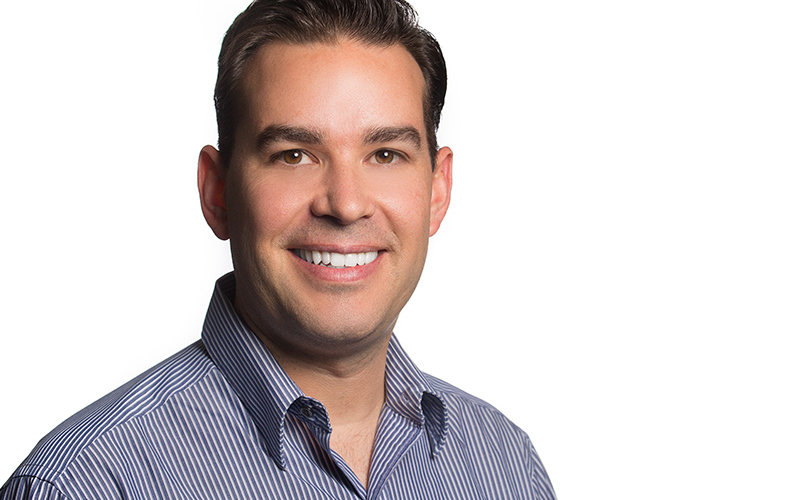
Dustin Barr ‘06, ‘08 (B.M. music-instrumental, M.M. music-performance) has returned to Cal State Fullerton to inspire fellow Titans, much like he was inspired when he was a student here. A recent guest conductor with the United States Army Band, “Pershing’s Own,” the assistant professor of music and director of bands was recognized in 2010 as one of the nation’s preeminent young conductors as part of the National Band Association’s Young Conductor Mentor Project.
Barr held the prestigious Rackham Merit Fellowship at the University of Michigan, where he received a doctorate of musical arts in conducting. Prior to his arrival at CSUF, he was assistant director of bands at Michigan State University.
What inspired you to come back to your alma mater to teach?
As a proud Titan and a first-generation college student, I am uniquely aware of the power of Cal State Fullerton to change lives. The education and mentorship I received as a student gave me the knowledge, skills and self-determination to succeed in graduate school and in my professional career. Returning to my alma mater as a professor allows me to give back to an institution that paved the way for me to succeed and to affect positive change in the lives of future generations.
What are your research interests?
I am co-authoring a book on the topic of gestural authenticity and conducting. The text attempts to answer the question, “Why might two conductors make a very similar conducting gesture but achieve two very different musical results?” Lessons borrowed from such diverse fields and disciplines as acting, illustration and tai chi offer conductors new ways of examining their bodies as tools for musical communication. In short, the text goes beyond the baton, hands and face of a conductor to explore how the entire body must be actively involved in the process of communicating musical intentions.
What do you hope students get from your instruction and experience?
While I certainly hope that my passion for music, music education and conducting is inspiring and contagious, I also hope that my teaching provides new ways for my students to think about musical performance and musical style. So much about musical performance is impossible to notate on paper, which often makes it rather elusive to discuss. I hope that I am able to give language to the abstract and to provide new avenues of thinking and listening to my students in order to make the elusive more obtainable.
What would you like the general public to know about conducting?
Conducting involves far more than the basic navigational aspects of the job (starting/stopping an ensemble, cueing musical events, keeping the beat). At its best, conducting is a living, breathing conversation between the conductor and the ensemble. Every subtle move of the conductor can influence not only when musical events happen or how loud or soft they occur, but also the depth and richness of the resultant sound. A conductor’s gestures help to unify many of the musical decisions that are impossible to notate on paper.